
Engaging Hearts and Minds in a Broken Culture
This discussion offers a preview of Volume #16 “Cultures in Conflict” from the That The World May Know video series, available below.
Home » Episodes » Focus on the Family Broadcast » Global Persecution and Your Faith
Excerpt:
Rev. Johnnie Moore: The wife’s brother sent a letter and said, “Come back to Syria and come back to Islam, or we are going to come to you. We know where you are. And we’re going to crucify you, like your Jesus.” And I’ll never forget sitting with his mom in the top of this church in Lebanon as she told us this story, but I didn’t expect the end of the story. She said, “We wrote them back.” And she said, “Our letter said, Come. We’re willing to die for Jesus. He died for us.”
End of Excerpt
John Fuller: That’s Reverend Johnnie Moore describing the tragic reality of religious persecution in our world today, in which followers of Christ are the main targets. This is Focus on the Family with your host, Focus president and author Jim Daly. And I’m John Fuller.
Jim Daly: John, I’m sure many of our listeners are aware of the struggles we periodically face with religious freedom here in North America, Canada and the U.S.
The Bible gives lots of warnings about the persecution we’ll encounter in this life specifically because of our faith. Uh, for example, 1 Peter 4 reminds us that when we’re insulted for the name of Christ, we’re actually blessed by God. Now, I don’t know how many of us as believers remember that Scripture. But when somebody’s cursing you because of your faith in Christ, count it as a blessing from God. That’s a totally different way to see it, but it’s a biblical way to see it. The fact is, uh, the religious persecution that we face in the United States and Canada pales by comparison to what many Christians experience each and every day in countries where they don’t have those freedoms, and it is extremely hostile.
John: Uh-hm.
Jim: This weekend, Sunday, November 3, is the International Day of Prayer for the Persecuted Church. And that’s exactly why we’re doing this program today. We urge you to participate and remember that we’re all linked as believers who suffer for the name of Jesus. But, again, count it a blessing!
Our guest today is going to help us better understand what this persecution looks like around the world.
John: Yeah. Johnnie Moore, uh, who we heard in that opening clip, is an advocate, a humanitarian, PR executive, author, speaker. He is passionate (Laughter) …uh, about fighting for religious freedoms and doing everything he can to help persecuted Christians. And he routinely interacts with religious leaders and heads of state about these concerns. He’s got a powerful book, Jim, that we’re offering at the website, The Martyr’s Oath: Living for the Jesus They’re Willing to Die For. Uh, stop by focusonthefamily.com/broadcast to look it up and get your copy.
Jim: Johnnie, welcome to Focus on the Family.
Johnnie: Thanks for having me, Jim.
Jim: All right, where’s this passion come from? I mean, vocationally, you’re doing business and doing all that. There’s businesspeople listening right now, thinking, where do you find the capacity to do this for the kingdom when you’ve got your regular stuff? So where’s the passion come from, and how do you squeeze it all in?
Johnnie: I just made a choice to do it. When I founded my company, I decided I would invest somewhere between, you know, 10% and a quarter of my time as an advocate for persecuted Christians. And by being an advocate – not just raising my voice, but actually telling their stories because that’s – that’s how I became passionate about it. I – I went on the ground. I met with people, uh, and, uh, it basically wrecked my entire life. I started looking at my entire world through those who – um, who suffer for their faith. There was one experience in particular.
Jim: Tell us about it. What was that experience that grabbed your emotion in this regard?
Johnnie: You know, I – I was in college. And I’d never been outside of the United States. I’d – I’d grown up in the Bible Belt in South Carolina. And, uh…
Jim: Went to Liberty University.
Johnnie: …I went to Liberty University, and someone told me I should go to India. (Laughter) And so…
Jim: Did you first say, “Why?” (Laughter)
Johnnie: Yeah. Well, I – you know, India was, like, the, you know – it was a – a country that, uh, I – I knew something about. But what I didn’t know about was the church in India. And they said, “Well, there’s this Bible school graduation you should go to.” So, you know, the – the founder of this Bible school was, uh – uh, you know, a friend of the founder of Liberty University. His son went to Liberty, and I, I got to know his son. So I’m thinking, I’m going to Bible school. You know, I – it’s just gonna be like Liberty, we’re gonna have a commencement service. And I get in India. And I’m on a train forever. And I’m in the middle of nowhere. And I get to this tent. And inside this tent are 2,000 Bible school graduates.
And they all stood there to get their diploma, but there was an extra part of the ceremony. Before they were given their diploma, they all had to stand up, and they had to recite a martyr’s oath. They had to say, like, they were willing to die for Jesus Christ.
They were willing to lose their wealth, their family. They didn’t have much wealth to begin with. They – they weren’t just going to get their diploma from the Christian school. They literally had to count the costs for their faith. And the guy delivering the martyr’s oath was a legendary Indian Christian. His name was M.A. Thomas. He had had multiple assassination attempts on his own life because of his faith. And he didn’t feel good about giving them their diploma without them knowing what it could cost them. And as I stood, and I listened to those thousands of people confess their willingness to die for Jesus, I – I just thought of how hard it was for me to live for Jesus. And it was as if I was standing in the book of Acts. And so much of the Bible I’d read, I didn’t understand until that moment.
Jim: And, Johnnie, I mean, it’s fair you had that unique experience that God gave you. And I’m sure you’re frustrated at times trying to express that to those of us in North America that live an incredibly, comparatively, comfortable life, that, you know, we – we walk with the Lord. We believe in God. We profess it. We might mention it a couple of times in our workplace, maybe even invite somebody to church, not knowing if we’re gonna get a, uh, yes or a no and then feeling embarrassed when we get the no – “I’m sorry, I didn’t mean to.” Right?
Johnnie: Yeah.
Jim: So that’s our environment. But tie those knots together for those of us that live in that kind of environment. Having that kind of experience is life changing.
Johnnie: Well, it’s, you know, we – we read the Bible, but we don’t really understand it until you look at it through the eyes of the persecuted church. You can’t go, like, three pages in the New Testament without running into a persecuted Christian or someone who’s talking about persecution. And Jesus himself, I mean, again and again and again, “Blessed are the persecuted.” He – he said – just before he was leaving us, he said, “A time is coming when people will kill you in the name of God.”
In the world we’re seeing, around the world, where people are having to convert or die, you know, for me, hearing these stories of regular, everyday moms, dads like myself, you know, with a 6-year-old, a 5-year-old and a 2-year-old – moms like my wife, you know, that one day wake up and, all of a sudden, their life is wrecked because a terrorist walks inside – inside the front door. And I’m just convinced we will never have the fullness of the Christian life unless we’re being persecuted ourselves or helping those who are being persecuted. And God did not give us the blessings he’s given us in our country or whatever country you live in – if you even have the ability of hearing this broadcast for yourself – he gave it to us to serve those who need our help.
Jim: That’s so well said. You describe an encounter with someone named Rose – to get right to the point in kind of what you were just describing. Give us Rose’s story, what country, if you can…
Johnnie: Yeah.
Jim: …And then, what was her circumstance?
Johnnie: You know, uh, my mission with The Martyr’s Oath was to take the experience that I’ve had around the world and to give it to other people because not everyone can go to all these countries and meet with all these people. And we went to Nigeria. And there’re three states in Nigeria, where, uh, almost 7,500 churches have all been destroyed, where Boko Haram terrorists come in the middle of the night. They ransack the entire area. They behead the Christians and pastors. They burn all the churches. It is a massacre. Boko Haram killed more Christians than ISIS did in the – in the year of the height of ISIS, in 2015.
Jim: And they’re linked in that way, uh, what we would refer to as – as radical Islam.
Johnnie: They pledged their allegiance to ISIS.
Jim: Yeah.
Johnnie: And they showed up at Rose’s house. We sat with her in a little cafe in Nigeria. Her arm is mangled, and she’s lost her entire family. And yet, as she told us this story, you know, she told it to us with this unbelievable resilience. And this has been, by the way, the experience I’ve had with these people all around the world. I think I’m going to help them, and in the end, they help me.
Jim: Well, that’s exactly right.
Johnnie: And this story, Rose’s story, I didn’t expect to help me, you know, in the way that it did because it was so awful. The terrorists come in the middle of the night. They’re firing gunshots. Her husband was a police officer. He opens the door. He has a gun. He tries to defend his family. They have multiple kids. She’s six months months pregnant, I believe. And they’re – so they’re firing their guns. He fires his gun. He unloads his gun. The terrorists come in. They – and I’m sorry to say this, but they behead her husband in front of her eyes. They behead her two sons in front of her eyes. And then she’s running out – this mom – this pregnant woman, Rose. She’s running, running out. And they’re running after her, these terrorists.
They defame the name of God by forcing people to convert by saying, “Allahu akbar,” which means, “God is great.” So they’re trying to demand that this Christian woman, after her husband are kids were killed in front of her eyes – beheaded, nonetheless – they’re yelling after her, “Say, Allahu akbar, Allahu akbar.” They’re trying to force her to convert. And Rose told us with this, like, crackle in her voice because she’s been permanently damaged – she said, “I was running as fast as I could to get away from them. And they were slicing at my back as I was doing it, and my neck.” And she said, “Every time they said I should say, Allah akbar, I turned around at them and I yelled the name of Jesus.” “Allahu akbar.” “Jesus!” “Allahu akbar.” “Jesus!” And they got her. And they sliced her. She – they thought she was dead. They ran away. She laid there for 2 1/2 days until someone found her. She miraculously survived.
And as we sat down with her…
Jim: Hm.
Johnnie: …Like, with every reason in the world to hate God and everybody else. She said, “It is because of God that I’m alive. And those terrorists could not take that away from me. They couldn’t even take my children and my husband because he’s with God in heaven.” And this tiny, frail, poor little woman had more faith inside her frame there than half of the churches and half the pastors I’ve ever met. This is why we tell our children these stories.
Jim: And Johnnie, the application is where people, um, stumble because, um – and I want to – you know, I’ve done a lot of international travel, too. And so I totally understand what you’re saying. But how does the person that has not had that experience – what do we learn from that, spiritually speaking? How do we embrace that for our own lives here in the West, where it’s far more comfortable? “Well, that’s a great story. It’s an amazing story. It’s a book of Acts story. Uh, what do you want for dessert?”
Johnnie: (Laughter) Yes. This is the way it is, isn’t it?
Jim: And I don’t – it’s not to shame anybody.
Johnnie: No, and we’re becoming desensitized to these…
Jim: And it’s – we live in – yeah – and we live in different environments. So my point is, how – how do we embrace that, and understand it, and pray for these people and pray for ourselves? What is the lesson learned from Rose?
Johnnie: You know, Rose now is serving her community in the name of Jesus. You know, and in our American culture, the first rule is this rule of self-preservation, right?
Jim: Yes.
Johnnie: We do everything we can to make our lives better, to – to improve ourselves, you know, to survive as long as we can. But the first rule of the kingdom of God is self-sacrifice.
Jim: Right.
Johnnie: If you – and in the end, everything God has given us is a blessing to begin with. And he was giving us a blessing. It’s for other purposes. And the other thing is, like, suffering is part of the Christian experience.
You know, in the New Testament, Peter wrote to these churches that were distributed all over in one of his letters – persecuted churches, by the way – he said like, “What credit do you get if someone persecutes you for no reason?” You know, “If they persecute you for a good reason and then you do as Jesus said – you turn the other cheek. You love them anyhow.” He said, “Then – then you’re a demonstration of the love of God.”
You know, he writes also, in 1 Peter, he says, “Live such good lives among those who don’t believe that in the day God visits them, they will remember your good works, your testimony, and then they will glorify God.” And what we see over and over again. It’s in all these places around the world, where these terrorists are going after Christians. You know, in Iraq, the Christian population went from 1.5 million to 200,000 in 10 years. In Syria, it went from 1.1 million to 400,000 in five years.
In all of these persecuted places, we’re also seeing amazing miracles. And we got – found some of their stories, and we sat down, and we talked with them. Every day, on a road to Damascus, there is a Saul becoming a Paul. And in every circumstance, it’s because of a testimony of someone who suffered because of Jesus, but they were able to persevere because of him, too.
John: Hm. Well, our guest today on Focus on the Family is the Reverend Johnnie Moore. And his book, The Martyr’s Oath, is available at our website or give us a call – focusonthefamily.com/broadcast or 800, the letter A and the word FAMILY.
Jim: Uh, Johnnie, another story you have is about a young man named Sami from Iraq. What’s amazing about his story is how he came to Christ. Um, I think by accident is what he said. (LAUGHTER) So describe this accident of Sami.
Johnnie: It’s not an accident any of us would want to have…
Jim: Correct.
Johnnie: So Sami and his friends are driving in a car from village to village in, uh – in Iraq. And along the way, they see a checkpoint. And you’ve traveled in these parts of the world, as I have, and these checkpoints are not uncommon. And you never know, you know, is it – is it a gang? Is it a terrorist group? Is it the government? Is it – you know, it’s – it’s a scary thing, and this one was especially scary because it was, uh, a terrorist checkpoint. So Sami – who’s a Muslim – and all of his friends, they get rounded up by these terrorists and taken to this place. And eventually, the terrorists decide they’re gonna kill them!
And so Sami, as he’s telling us the story, he describes this pit, this gigantic pit, filled with – with – with bodies, like we saw on television when ISIS was…
Jim: Yeah, mass killings.
Johnnie: Mass killings. And he said they – they lined everyone up at the top of this pit, and one by one, they were killing them and shooting them in the back, and they were falling into the pit. And Sami said, “I don’t know why I did this.” But a few days earlier, he had been watching television late at night, and there was a broadcast, a Christian broadcast of the story of Jesus and his disciples that somebody had piped in – in the Middle East. And he’s watching this broadcast about Jesus, you know, he really paid attention, for the first time, to the story. And he said, as he was standing at the edge of this pit, he remembered that broadcast. And he said, “I don’t even know why I did this. But as they came to me and they came to shoot me,” he said, “I just prayed underneath my breath, Jesus, help me!”
And he said, “It was the strangest thing; instead of shooting me, they kicked me into the pit, and they shot down in the pit, and they killed everyone all around me. He said there was blood everywhere. But somehow they missed me.” He said, “God spared my life!” And he said, “I laid there for the entire night.” And the next morning, he said, “I got up, and I walked out of the pit.” And he said, “I knew that Jesus himself had saved me.” And he said, “I walked out of the pit with Jesus’ name on my lips.”
Jim: Wow.
Johnnie: And by the way, his story doesn’t end there. I mean, he’s an amazing, amazing human being. He has experienced similar miracles in his life. And eventually, he ended up in Europe, where he is today, helping, uh, refugees that have come from that part of the world, distributing Bibles. There’s a mass awakening all across Europe of people who have left many of those war-torn countries, and the stories are miraculous. But Sami – God cared about Sami, and God chased Sami down. And now God is using Sami to change his own nation and his own people.
Jim: Johnnie, one of the exciting things that I’m seeing in the media right now – some Christian media, but some secular media – is the number of Christians – uh, Muslims who are becoming Christians in these countries, like Iran. It’s phenomenal. Why do you think that’s happening?
In the midst of this incredible, um, strife, God seems to be working incredibly within the hearts of people there. What’s happening?
Johnnie: You know, what the enemy meant for evil – it’s like, he decided, uh, with ISIS and the terrorists like them, that he, uh – the enemy was just gonna finish it off. He was just gonna take everyone out. But in the end, what he did is he created these unbelievable stories all across the region, and the word is getting around. I mean, there was this one family I met in Lebanon. And they had come as refugees into Lebanon from Syria. They were Muslims. There was a church that was not focused on converting anyone; they were just serving people and serving people and serving people. And, uh, this refugee family ended up with a Bible. They read the Bible. They converted to Christianity. They became a part of the church. And their family in Syria found out about it.
So the wife’s brother sent a letter and said, “Come back to Syria and come back to Islam, or we are going to come to you. We know where you are. And we’re going to crucify you, like your Jesus.” And I’ll never forget sitting with his mom in the top of this church in Lebanon as she told us this story, but I didn’t expect the end of the story. She said, “We wrote them back.” And she said, “Our letter said, Come. We’re willing to die for Jesus. He died for us. But please don’t crucify us because we’re not worthy to die the same death as our Jesus.”
Johnnie: I just wonder, like, in our Christian culture, which God has given us as a blessing, to be a blessing to the world, we mustn’t forget, like, the New Testaments books are books of suffering and sacrifice for the name of Jesus. And what I found in my own life, when I finally went and experienced the persecuted church as a college student, that I had found what the New Testament says – you can have a form of godliness with no power.
Jim: Yeah.
Johnnie: Like, I had a form of godliness. And I’m scared to death, by the way, Jim, of, like, raising my kids, my children, with a form of godliness, with no power, with a Christian culture…
Jim: Yeah.
Johnnie: …Without the power of the word of God. And I just believe, with all my heart, the most effective form of discipleship is exposing the church in this country and future generations to the stories of these young people, men and women, whose faith actually cost them something and costs them something every single day.
Jim: Ah, that is so good. And Johnnie, the difficulty for us is that – is elusive because we’re so distracted with everything else going on – um, our comfort and our leisure, to be blunt. We’re captivated by that, and it distracts us from the core mission.
Johnnie: And if you’re not intentional about it, uh, it’s not gonna work.
John: I think, uh – help us, though, not become weary of hearing so much out there, Johnnie. I mean, there’s so much information overload. How do I pay attention to the really important things?
Johnnie: You know, the thing is, the church is the image of these things around the world. Um, and one of the things that’s amazing is the – it’s the good part of the story, too. We were talking earlier about Iran. There are all kinds of scary things coming from that part of the world these days. But in Iran, one of the things that isn’t scary is that the church of Jesus Christ is probably growing more frequently and quickly in that country than any other country in the world, so much so that, uh, earlier this summer, the head of intelligence in Iran, in Persian, got together all of the – uh, a number of the Shiite imams who, uh – who lead the city of Qom.
Jim: So the religious leaders.
Johnnie: The religious leaders in – in Qom, which is the most religious city, where the – where the supreme leader comes from. And he scolded them. And the reason why he scolded them is because there were so many Muslims that were converting to Christianity. He did it all in Persian, you know, so it wasn’t meant to be consumed in English, but someone translated it. But it was an amazing thing. He was scolding them because he thought because they were fighting with one another, that people were leaving the faith. But, in actuality, it’s just that the Gospel of Jesus Christ was growing and bearing fruit all across that – that part of the world. But as Christians, we have to be globally minded. We have to know what’s happening, so that we can pray.
Jim: Yeah.
Johnnie: We can sit with our children. We can sit with our churches. We can watch protests in Hong Kong. We can watch geopolitical issues in Iran and North Korea. And we can pray intently knowing that God’s people are there too, and these countries matter for lots and lots of reasons, not just geopolitical reasons.
Jim: Yeah, that is good.
You know, when governments do good things, we need to recognize that. And it’s not a partisan issue. But you’ve been a part of this administration, the Trump administration. And, um, you know, I’ve interviewed Secretary of State Mike Pompeo on this broadcast. They have done some amazing things to support religious liberty around the world – probably, in the modern era, probably the most supportive, uh, administration that we’ve seen. Describe some of that activity and why Christians need to be aware of that. This is good.
Johnnie: You know, maybe because it is so bipartisan, you know, the administration doesn’t, uh, get a lot of credit for it, and – by the way, as they don’t get a lot of credit for criminal justice reform, you know, which is an entirely a bipartisan issue. But this administration facilitated the largest human rights gathering ever of any type at the State Department, and it was focused on religious freedom. And I was there. And when you look around, you see people of all kinds of different faiths. You see – normally, when in these multi-faith gatherings, you sort of see excluded groups. Sometimes, as evangelicals, we’ve been excluded from some of those things. We were included, sitting alongside of everyone. I – I sat across from someone from the World Council of Churches, you know, and – and lots of my very most conservative friends within the evangelical community and Buddhist and Hindus and Christians and Muslims all sitting together because the White House decided that religious freedom wasn’t just a priority of our founders, who fled Europe for religious freedom.
But it had to be at the very, very heart of foreign policy. And then there’re all the little things they’ve done that nobody notices. Like, they’ve provided $300 million of aid directly to the persecuted communities in northern Iraq.
You know, one of the last times I was at Focus on the Family, uh, Mark Burnett and Roma Downey were, uh, at Focus talking about their concern for persecuted Christians around the world. And they were trying and all of us tried with all of our might to raise $25 million to help them. And eventually, we did. We raised over $25 million. But the U.S. government wrote a check for 10 times that because people in this country, Republican and Democrat of all types, have said that this is a priority. That religious minorities – Christians and Yazidis and others in countries like Iraq and Syria…
Jim: Need protection.
Johnnie: They deserve our help, and they need protection.
Jim: Yeah, absolutely.
Jim: Johnnie, we’re down to the end of the program. And I want people to walk away with those practical suggestions for families who want to become more connected on this issue of global persecution of Christians. What can we do? What can I do with my boys – Jean and my two boys? What can we do?
Johnnie: Yeah. The first thing is, pray. You know I always say this, like, it’s the first – but – but pray specifically and thoughtfully for these countries.
Jim: Where can we get the items to understand how to pray? Where is there a list of the – pray for this in Iran. Pray for this in Syria?
Johnnie: There – there are so many great organizations. Like, Open Doors International is one that I, uh, that I do a lot with. But what I prefer to do, actually, is I like to just sort of take the newspaper, and whatever country…
Jim: That’s good!
Johnnie: …Is out there, and we pray for that. And you can pray nonspecific things. Pray the church will be provided for, that they will persevere. Pray that everything that they need will come. And…
Jim: That they have influence.
Johnnie: That they would have influence. They would be lights. And then, by the way, give to them. You know, and every church in the country – your church, my church, every church in the country supports organizations that help the persecuted church. You guys have done unbelievable things. I mean, I – I remember calling up, uh, Focus one time because we were trying to help, you know, Egyptian Christians. And you guys were already working, and then you added on and did – you know, and helped this group that we had found out about. I mean, what you guys do – what everyone does – but actually put your money where your mouth is, and help these people, and then get involved!
You know, raise your voice. Members of Congress respond – Democrat and Republican – when people care. When you tell the stories and you make it a priority in your home and your church and your office, people start paying attention to these things. And that’s how change happens around the world.
You know, we – we, uh, worked to get genocide resolutions passed to help the Christians and Yazidis in northern Iraq after ISIS was taking them out. Do you know those genocide resolutions? They passed unanimously in both the House and the Senate in the United States. Why did they pass unanimously? That’s like the parting of the Red Sea in American politics. They passed unanimously because Christians of all kinds raised their voice and told their politicians that this was a priority. So pray like you hope someone will pray for you. Give like you hope someone would give if you were them. And raise your voice like you hope someone would raise their own voice for you.
Jim: Johnnie this has been terrific. And, really, this isn’t a shaming thing or a guilt thing. This is just an informed thing. You know, let’s be better informed about what’s going on around the world. Let’s step outside of our cable news services and kind of our everyday life and better understand the world as God sees the world and what his people are doing to influence for better, uh, this world. And thank you for this book, The Martyr’s Oath. I hope people – I hope you – will pick up a copy through Focus on the Family here. If you can support us with a gift of any amount, uh, we’ll say thank you by sending a copy of Johnnie’s book, uh, to you.
And if you can’t afford it, well, I believe in this so much I trust others will cover the costs of that. Just get in touch with us and ask us for a copy. Uh, we’re more than willing to commit in that area as well. So do reach out to us. Uh, give us a call. Get a copy of Johnnie Moore’s wonderful book – a tough book, but a wonderful book, and I say that in the right way – The Martyr’s Oath: Living for The Jesus They’re Willing to Die For.
John: We’ve got details about the book, how you can donate and other links, uh, so you can stay up-to-date and current and, uh, pray effectively for the persecuted church around the world, uh, all at focusonthefamily.com/broadcast, or call 800, the letter A and the word FAMILY – 800-232-6459.
Jim: And finally, remember to pray. That’s how we started this program. We mentioned the International Day of Prayer for the Persecuted Church. It’s this Sunday on November 3. So do mark that down. Pray for the church around the world for God’s light to shine. And Johnnie, uh, thank you so much for doing just that today with us. Thank you.
Johnnie: Thanks for having me.
John: It was really was great talking with you about this really important topic and we so appreciate your perspectives. And trust that as a listener you will participate in payer this weekend. And do make plans to join us again on Monday when we’ll hear a heartwarming story about a young boy’s adoption from foster care.
Teaser:
Boone Stokes: The reason why I got it is because I would say, “Jesus told me,” and I’d say, “My dad’s love showed me he was trying to help me and not hurt me.”
End of Teaser

Johnnie Moore is a businessman and the founder of one of America’s leading boutique public relations and communications consultancies, The KAIROS Company. He is known internationally as a humanitarian leader, especially for his multi-faith work at the intersection of religion and foreign policy. The Rev. Moore is a bridge-builder between the Abrahamic faiths, having worked directly with leading religious figures in more than 20 nations. Appointed by President Trump, he serves as a Commissioner on the U.S. Commission for International Religious Freedom, and he is a recipient of the prestigious Medal of Valor from the Simon Wiesenthal Center. Moore is a prolific writer, having published multiple books and numerous articles for media outlets like CNN, Fox News, and the Religion News Service. He and wife, Andrea, have three young children. Learn more about the Rev. Moore on the “who we are” page on his company’s website.
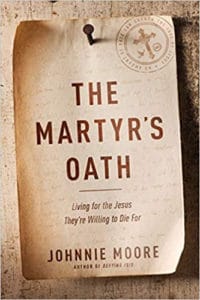
Receive Johnnie Moore's book The Martyr's Oath for your donation of any amount!

Visit our online store and purchase a CD of today's program for yourself or to share with a friend.

Join Jim Daly and John Fuller November 11th-15th for an exciting five-city tour featuring live broadcast tapings. Special guests include Joni Eareckson Tada, Steve Arterburn, Emily Colson, Scott Klusendorf, and Al and Lisa Robertson, along with live music from some of your favorite Christian artists!
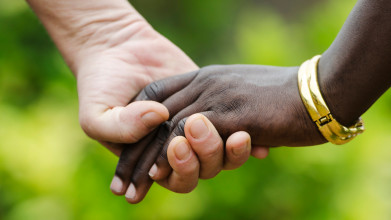
Don’t let the ongoing debate about immigration policy keep you from ministering to the tens of thousands of refugees who are already here in the United States.
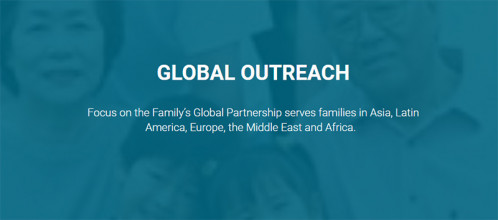
Learn about Focus on the Family's ministry efforts around the world.
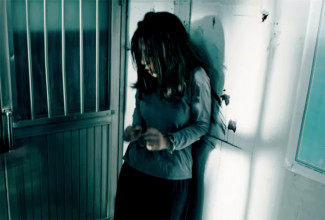
A powerful video from Voice of the Martyrs USA that depicts the challenges of following Christ inside North Korea.
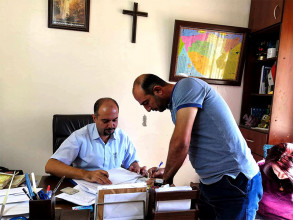
We want to help you engage with your sisters and brothers in Syria, and help them through your prayers and support. So here are 6 things you should know about the conflict in northern Syria.
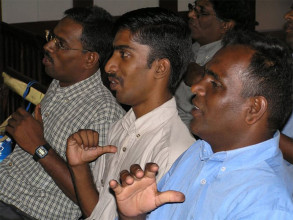
Fears of attack are still high since Easter Sunday 2019 when coordinated bombings hit three churches in Colombo, Negombo, and Batticaloa, killing at least 300 people and injuring hundreds.

The Rev. Johnnie Moore explains why your faith should be more important than your patriotism.

The Rev. Johnnie Moore describes how Christians began to transform the Roman Empire.

Tom Doyle and his wife, JoAnn, tell inspiring stories of bold Christians in the Middle East who have been courageously sharing their faith despite the constant risk of persecution and death. Our guests remind listeners of the need to pray for persecuted Christians in the Middle East and around the world.

This discussion offers a preview of Volume #16 “Cultures in Conflict” from the That The World May Know video series, available below.

Debra Fileta will help couples better understand the four seasons of healthy relationships, what to expect during each one, and how to carefully navigate them for a stronger marriage. (Part 1 of 2)
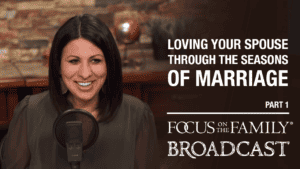
Debra Fileta will help couples better understand the four seasons of healthy relationships, what to expect during each one, and how to carefully navigate them for a stronger marriage. (Part 1 of 2)

Larnelle Harris shares stories about how God redeemed the dysfunctional past of his parents, the many African-American teachers who sacrificed their time and energy to give young men like himself a better future, and how his faithfulness to godly principles gave him greater opportunities and career success than anything else.

Amy Carroll shares how her perfectionism led to her being discontent in her marriage for over a decade, how she learned to find value in who Christ is, not in what she does, and practical ways everyone can accept the messiness of marriage and of life.

Jonathan McKee offers parents practical advice and encouragement in a discussion based on his book If I Had a Parenting Do Over: 7 Vital Changes I’d Make.